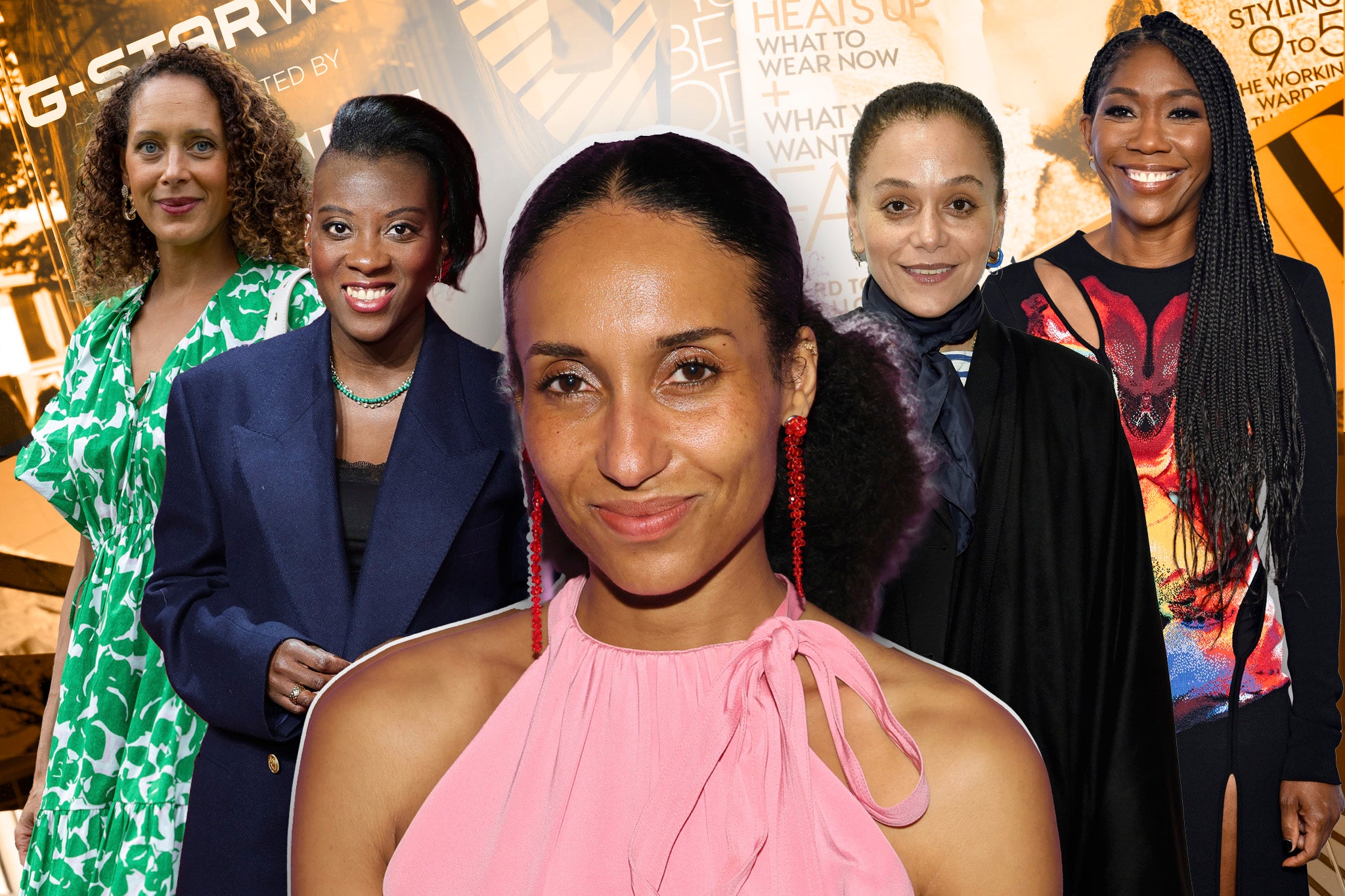Chioma Nnadi at Vogue: All hail the era of the Black female fashion editor
A 73-year-old white woman may still call the shots at Vogue but the appointment this week of Chioma Nnadi as the British edition’s new editor underlines a significant vibe shift in fashion, writes Melanie Rickey


As news of her appointment as the lead at British Vogue made headlines, Chioma Nnadi was in New York, hosting a podcast on Vogue.com, the site she currently edits, in her typically relatable style.
“It’s surreal,” the 44-year-old Londoner says of her new job on The Run-Through podcast. “One headline said ‘The Devil Wears Sambas’ and I do,” she says, referring to the iconic Adidas sneaker that is part of her fashion uniform. “Today I’m wearing a vintage Comme des Garcons top I bought on The Real Real. I’ve always loved vintage. I still love going to Portobello [market] on a Friday when I’m in London. I haven’t lived there in 20 years. It will be like discovering it anew.”
Nnadi, who moves back to London to begin her job on 9 October and has admitted she’ll be staying with family until she finds a more permanent base, is picking up the reins from editor-in-chief Edward Enninful, 51, who exits in January 2024 after wrapping up his March edition. However, in a confusing twist, Nnadi’s new role is not editor-in-chief, rather it is the altogether more down-to-earth position of “head of editorial content”.
As part of Vogue’s recent global repositioning as a digital-first brand – an effort bolstered by last week’s Vogue World London event, which raised close to £2.5m for Britain’s arts – all but one international edition of Vogue are soon to be helmed by editors holding “head of editorial content” roles.
Vogue’s last remaining editor-in-chief of the old-school, 73-year-old Anna Wintour, has described Nandi as “an editor and writer with an impeccable reputation”, adding that in her role as editor of Vogue.com Nnadi had proved “adept at speaking to our digital audience and has found ways to extend Vogue’s reach, authority and influence across all of our platforms”.
This history-making move means not only is this the first time British Vogue has been led by a Black woman – after six years run by a Black man – it is also the first time the magazine has ever been led by a non-editor-in-chief, and all the attendant powerplay that comes with it.
While it looks to be a seismic change, in reality, Nnadi’s appointment marks the careful positioning of the final puzzle piece in a vibe shift that has taken place across the magazine industry in recent years.
After 10 white female editors, Nnadi is the first Black woman to lead the magazine in British Vogue’s 107-year history. It is also significant that the editor of Britain’s other fashion glossy, Elle, is a Black woman: Kenya Hunt, also an author and mentor, who has held her role since March 2022. As is Andrea Thompson, who has been the editor-in-chief of British Marie Claire since 2019. In the US, the female editor-in-chief of Marie Claire (Nikki Ogunnaike), The Cut (Lindsay Peoples) and Harper’s Bazaar (Samira Nasr) are all Black women.

So Nnadi’s appointment really marks, at long last, the end of an era: out with the rich, white, skinny, upper-class archetype of an A-list editor, and in with editors who are a truer reflection of the society we live in.
To give it some context, the same editor (Alexandra Shulman) ran British Vogue from 1992 until 2017. From the day I graduated university until I was in my forties, there was no change at the top.
Of course, these editors’ old primary purpose was to dispense fashion and luxury exclusively from on high. We are now approaching a magazine industry, and more widely a fashion industry, that celebrates all of culture, rather than the diktats of a small section of the monied upper class in their own bubble of privilege. More trickle-up influence, than trickle-down power.
Born to a Swiss-German nurse mother and a Nigerian father who came to the UK to study in the 1960s, Nnadi began her writing career at the Evening Standard before moving to New York to write for Trace, an independent style magazine.
After writing for music magazine Fader, she joined Vogue as a writer in 2010 before becoming fashion news director and then Vogue.com editor.
In the past year, Nnadi has been positioned as one of the most prominent editors at American Vogue overseeing the website, as well as writing lead cover stories for the print edition. Most recently, she interviewed Cara Delevingne about her recent recovery from addiction. Nnadi was also the choice of interviewer for the musician and songwriter Erykah Badu, who covered American Vogue in March.
“That she is in tune with emerging designers and culture and holds diversity and inclusion as priorities is a given and follows on so well from Edward’s work,” says former Vogue fashion features director, Harriet Quick.
“Chioma is super down-to-earth,” says former fashion consultant Yasmin Sewell, of the wellbeing brand Vyrao, who has known Nnadi for years. “She is intelligent, warm and approachable, the opposite of the old-school editors. To me, she represents somebody who can hold a powerful position, and still be real, plus she is one of the few women whose style I really admire.”
This style still extends to Birkenstocks, which though a mega-brand today and rumoured to be staging an IPO, was the footwear, along with Clarks school shoes, that her mother gave her to wear as a child in 1980s London.
When she was 17, Nnadi entered the Vogue Talent Contest, which rewards young fashion writers with work at Vogue. “My mum found the entries I wrote,” she says. “One was about learning to love my natural hair. I was like ‘Wow’ ... back then there would never have been space for a story like that in British Vogue. I didn’t see women who looked like me on the pages of the magazine. Now I feel lucky to be coming on when that is so much a natural part of the conversation.”
And now that she is in charge, Nnadi will have the power to change the conversation even more.






Join our commenting forum
Join thought-provoking conversations, follow other Independent readers and see their replies
Comments